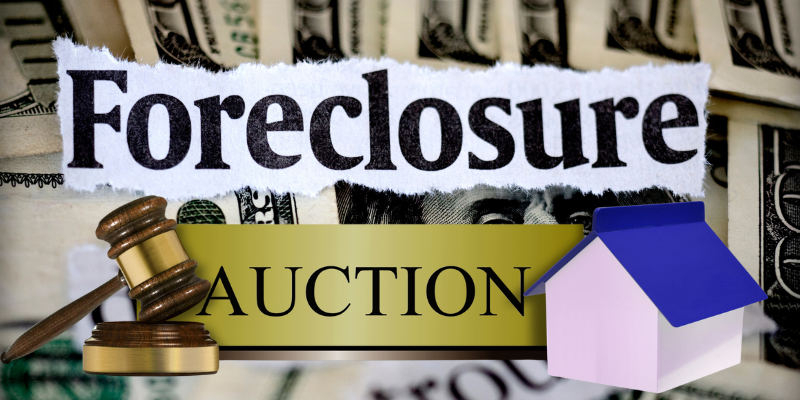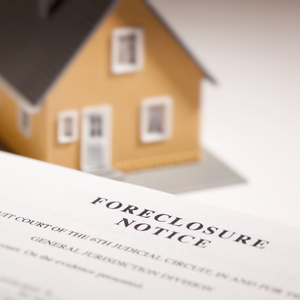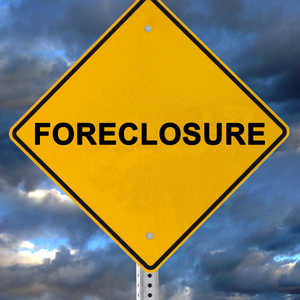
Financially distressed Cullman, AL, homeowners must know the foreclosure auction timeline to vacate. Alabama’s foreclosure process is fast, leaving many confused. After the auction, this guide explains state laws and what to expect as homeowners leave their home. By understanding legal proceedings and deadlines, homeowners can better strategize during this difficult time to protect their interests and comply with the law. Cullman homeowners can confidently plan their next move with North Alabama House Buyer. To transition smoothly in Cullman’s dynamic housing market, stay informed.
Brief Overview
The Alabama foreclosure process, especially in Cullman, is fast, so homeowners must prepare for the transition after an auction. Judicial and nonjudicial foreclosures in Alabama have different timelines and consequences. A year to pay off debts allows homeowners to reclaim their properties, which can affect post-auction plans. Relocating can be easier with legal advice and practical planning, like organizing belongings and finding new housing. Cash home buyers in Cullman and nearby cities can help homeowners transition quickly and reduce financial stress. A smoother transition and housing security are protected by being proactive and informed.
Key Highlights
- Prepare for the Cullman, AL relocation after the foreclosure auction by understanding legal timelines.
- Judicial foreclosures take longer and protect homeowners more than nonjudicial foreclosures.
- Foreclosed homeowners need a year to settle debts and reclaim property.
- Redeem, declare bankruptcy, sue, or negotiate stay terms after foreclosure.
- Legal professionals can help you understand your rights, manage obligations, and negotiate post-sale agreements.
Understanding the Foreclosure Process in Alabama
Understanding the foreclosure process in Alabama is very important for homeowners in this situation. The state allows foreclosures to occur through a judicial or nonjudicial process. These processes are defined by state law, which includes some foreclosure law codified in the Alabama Code. Each method involves certain considerations for the homeowner, lender, and buyer. This is particularly important to understand in determining how swiftly a homeowner will have to leave their property after a foreclosure auction in Cullman, AL. Here are the stages of foreclosure in Alabama and a comparison of judicial and nonjudicial foreclosure.
| Foreclosure Type | Process | Speed | Homeowner Impact | Legal Considerations |
|---|---|---|---|---|
| Judicial | Initiated through the court system | Slower | Increased opportunity to contest | Requires court approval |
| Nonjudicial | Conducted without court involvement | Faster | Limited time for response | Based on power of sale clause |
This table compares judicial and nonjudicial foreclosure processes in Alabama and their key differences and effects.
Stages of Foreclosure in Alabama

State laws and the Alabama Code govern each stage of Alabama foreclosure. The homeowner receives a notice of default from the lender for missed mortgage payments. During this stage, homeowners can negotiate to avoid foreclosure, a crucial real estate market step. After notice, the lender may start judicial or nonjudicial foreclosure. Judicial foreclosure involves the lender suing to sell the property.
Since the court enforces the sale, judicial foreclosures take months. This allows homeowners more time to refinance or negotiate with lenders. Nonjudicial foreclosures happen outside of court. Nonjudicial foreclosures are faster but may limit homeowner opposition. The Alabama Code specifies requirements for nonjudicial approaches. The lender normally sends a notice of sale with the foreclosure auction time and location.
The property is sold to the highest bidder quickly, which can speed up moving out. It highlights the procedural aspects homeowners face and the differences in experience based on foreclosure type. These stages must be understood whether judicial or nonjudicial. Due to their complexity and potential effects on all parties, Alabama’s foreclosure laws must be carefully implemented to balance lender and homeowner rights.
Understanding the Differences Between Judicial and Nonjudicial Foreclosure
For residents of Alabama, homeowners, lenders, and buyers alike, understanding the differences between judicial and nonjudicial foreclosure is important. A judicial foreclosure involves filing a lawsuit, where the lender gets permission from the court to foreclose, and then takes the steps detailed in the Alabama foreclosure code. Because of the court’s involvement in the process, this option takes the longest, thus giving the homeowners more time to try to sort out their finances or dispute the foreclosure. Nonjudicial foreclosure, on the other hand, has no court involvement and is, therefore, quicker, as specified in the Alabama Code. While the lender is still required to take certain steps and provide enough notice to the homeowner before the auction, this option is quicker, which may leave homeowners with less time to respond to the sale of their property.
Lenders’ options for minimizing risk while securing their investment include the impact on the timing of recovery and the terms of the underlying mortgage. Cost and speed of recovery become even more critical variables in the nonjudicial process. That said, more legal recourse and supervision of the process is one option of the judicial route. From legal practice and foreclosure process perspectives, the extra legal supervision is helpful when the process is particularly convoluted and legal clarity is desired, as the process tends to border on the arbitrary in many non-judicial foreclosures.
The difference in the transparency of judicial and non-judicial processes defines what is available to would-be buyers for either process. Non-judicial processes provide buyers with the risk of unresolved legal options. Judicial processes, while more cumbersome due to all the filings, tend to have more information due to the court processes. Alabama represents an equilibrium of the three competing principles of speed, cost, and justice. Knowledge of the trade-offs described above empowers multiple decision-makers in the foreclosure process: the home defender, the recovering investor, and the buyer of the foreclosure.
The Redemption Period and Its Implications
The redemption period holds significance during Alabama’s foreclosure process. It gives homeowners another opportunity to recover their property even after it is auctioned. In Cullman, Alabama, this period may last as long as one year, during which time homeowners can reclaim their residence by paying all indebtedness and any other fees. Such law derives from the extremes of state law and acts as a buffer for those undergoing foreclosure. Knowing the specifics of redemption foreclosure explains to the homeowner, lender, and prospective buyers the most important parts of a foreclosure sale with regard to their decisions and plans.
Explaining Foreclosure Redemption in Cullman, AL

In Cullman, AL, and throughout Alabama, the time during foreclosure known as the redemption period is very important. Homeowners who lose their property in a foreclosure sale have a full year as a grace period. Alabama law lets the former homeowner and some third parties, typically banks and lenders, redeem the home by paying the full foreclosure sale price, including any interest that has accumulated and costs that the current buyer incurred. This law helps homeowners recover their property and avoid losing it immediately and permanently after a foreclosure sale.
The redemption period allows homeowners the chance to reorganize their finances, address open debts, or obtain funds to buy back their home. Nonetheless, it requires covering the auction price, accruing interest, and any owner expenses spent on improvements. It also allows balance by ensuring homeowner rights and giving the buyer time to wait for the full period to pass without any contest on ownership of the property.
The redemption period has valuable implications for all parties. For homeowners, it’s the chance to rebuild their finances, and for buyers, it’s the risk of redemption vs. the reward of buying a property for less. Lenders also hold an administrative position by ensuring that the redemption laws of the state are followed. Knowledge of Alabama redemption laws also aids and guides investors so they can know what they are buying. Redemption period in Cullman, Alabama, demonstrates Alabama’s responsibility in managing foreclosures.
Rights of Foreclosed Homeowners in Alabama
In Alabama, laws make it hard for foreclosures to go through, as well as laws determining what happens to a homeowner after a foreclosure sale. Foreclosed homeowners can take legally protected actions after the sale. These options should always be weighted post-auction. The options take into account legal obligations, financial benefits, the possible redemption of a home during the redemption period, and foreclosure relief. For homeowners looking to sell after or during foreclosure, cash home buyers in Alabama and surrounding areas help to make the process much easier and quicker. Now, let’s take a closer look at what homeowners in Alabama have available to them after the foreclosure sale.
Options Available After a Foreclosure Sale
Even after a home foreclosure auction, Alabama still offers a few options for homeowners. Most notably, homeowners have up to one year to redeem their property sale at a price that includes the costs of the foreclosure sale, interest fees, and any applicable legal costs. This time can be used to help gather needed finances and other valuable tools. Also, homeowners can file for bankruptcy, which can temporarily stop any foreclosure actions. This permits the homeowners to reorganize their finances and deal directly with their lenders. Sometimes, people can contest the sale legally after the foreclosure if mistakes or violations happened in the sale process. A good attorney can help identify procedural oversights and provide multiple options for appealing foreclosure sale actions.
Homeowners can take steps even after foreclosure to settle arrangements with the property’s new owner. A flexible move-out agreement with a homeowner is one option in a short-term lease. In these agreements, the homeowner gets more time to move and some form of payment in exchange for the move. Financial settlements ease homeowner stress in the absence of being able to move immediately. Alabama foreclosure laws and post-sale options can assist as a framework to help the homeowner decide on how to move on. Mortgage repayment, bankruptcy, negotiations, lawsuits, and other alternatives help restore balance after a foreclosure and define homeowner rights.
Consider these options before making a choice on how to best manage your situation:
- Look into offering a mortgage payment assistance program.
- Ask for financial payment or mortgage assistance. Counselor.
- Consider government-supported housing, other subsidized housing options, or assistance from a Relocation Company to help with your move.
- Ask local nonprofits and community organizations about foreclosure assistance resources.
- Participate in foreclosure legal update information and assistance sessions.
- Look into renter protection laws to avoid illegal evictions.
- Look into other credit and debt counseling and personal finance courses.
Learning these strategies will help empower homeowners in recovery and foreclosure to regain resources needed to stabilize their situation.
Moving Out After Foreclosure in Cullman, Alabama
Losing your home can be tough, especially if you’re losing a home in Cullman, Alabama. After a foreclosure auction, there are a few things to consider, especially concerning the legal time frame, for a smooth transition to your new home. During this time, you’ll want to take a close look at your case, talk to your lawyers, and follow Alabama laws concerning foreclosure. Actively working on things like managing estate contracts and legal duties will help you relocate with a lot less stress. Let’s take a look at some of the ways you can make this process a little easier.
Practical Tips for a Smooth Transition
Moving out after a foreclosure can be stressful, but with some steps, the process can be much easier. Knowing how to plan a timeline for the transitions following a foreclosure auction in Cullman, AL, is crucial. Under Alabama foreclosure law, until the property is reclaimed, homeowners gain the right to a redemption period for up to one year. It is beneficial to know your rights and plan for all the possible scenarios, which helps determine your available options as you start working on your plan. As an example, after a foreclosure, you will likely want to know how to plan for the redemption period if you decide to reclaim the property yourself.

Getting help from a qualified attorney in real estate or foreclosure will also help. They can explain your post-sale rights, help you understand any convoluted legal matters, and help negotiate with the lender or new owner of the property. In some cases, you may be able to arrange a rent-back period or short-term stay agreement while you look for new accommodations. This will help to streamline your movements and to ensure that you are considering all possible pathways along the transition to avoid complications.
Start downsizing and organizing your belongings as early as possible to lessen stress as the move-out date approaches. Focus on keeping the necessities, and consider selling or donating belongings you don’t need. This will ultimately lighten your load and make the transition smoother. When it comes to housing, begin your search early. This will make it easier to find a place that meets your new budget and lifestyle. Being open with your legal and real estate contacts will help you understand any changes or new opportunities that Alabama law may present. Being proactive and prepared will help you transition a difficult foreclosure into a positive and organized move to your new beginning.
For residents in Cullman, AL, understanding the time periods following a foreclosure auction is important. Alabama mandates a quick turnaround time, generally just a few days. That said, it is wise to take preparatory steps to get ready to leave. Seeking a legal perspective can help coordinate the steps to relocate and protect the individual’s rights. Please reach out to North Alabama House Buyer for assistance with strategic rights management and next steps. Proactivity and preparedness are the best defenses against stress and can ensure that a relocation is as close as possible to the ideal scenario and that the housing problem that follows is as small as possible.
Need to move out after a foreclosure auction in Cullman, AL? If you’re looking to sell fast, skip repairs, or avoid the hassle of a traditional sale, North Alabama House Buyer can help. We provide fair cash offers, manage all the paperwork, and ensure a smooth process from start to finish. Have questions or ready to sell your home quickly? Call us at (256) 824-9181 for a no-obligation cash offer and get started today!
FAQs
When must Cullman, AL, residents vacate after a foreclosure auction?
After a Cullman, AL foreclosure auction, you may have to leave quickly. Alabama law allows the new owner to take possession within days of the auction. Understanding this timeline is essential for moving.
What options do Alabama homeowners have after foreclosure auctions?
After an Alabama foreclosure auction, homeowners have several options:
- Pay off debts to redeem the property in one year.
- Bankruptcy may stop proceedings.
- Consider legal action if the sale is questionable.
- For temporary housing, negotiate with the owner.
What’s the difference between Alabama’s judicial and nonjudicial foreclosure?
Court proceedings give homeowners more time and protection in judicial foreclosures. Without court oversight, nonjudicial foreclosures move faster and offer less homeowner protection.
How can a Cullman, AL foreclosure lawyer help?
Estate contracts, foreclosure laws, post-sale agreements, and homeowner rights and responsibilities can be explained by lawyers. They may also help negotiate rent-back options and find financial solutions.
How does the redemption period affect Alabama homeowners?
Alabama allows foreclosed homeowners to redeem their property for one year by paying off their debts, including the sale price and accrued costs. This period may save financially struggling homeowners, but they must act quickly.
Helpful Cullman Blog Articles
- Capital Gains Tax After Selling a House in Cullman, AL
- How to Sell a Fixer-Upper House in Cullman, AL
- How to Sell a House When Relocating in Cullman, AL
- Can You Sell Your House with a Quitclaim Deed in Cullman, AL
- How Much Equity Do I Need to Sell My House in Cullman, AL
- How Long Can Seller Stay in the House After Closing in Cullman, AL
- How Long to Move Out After Foreclosure Auction in Cullman, AL
- How to Sell Your Parents’ House in Cullman, AL
- Selling a House to a Family Member in Cullman, AL
- Who Pays Taxes When Selling a House in Cullman, AL
- Selling a House with Solar Panels in Cullman, AL
- Selling Your House to a Relocation Company in Cullman, AL

